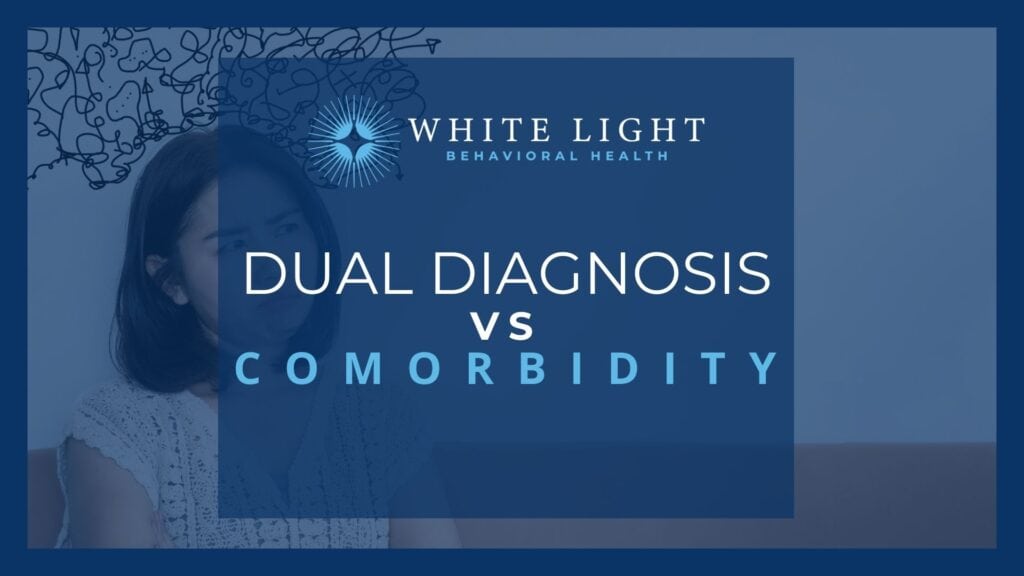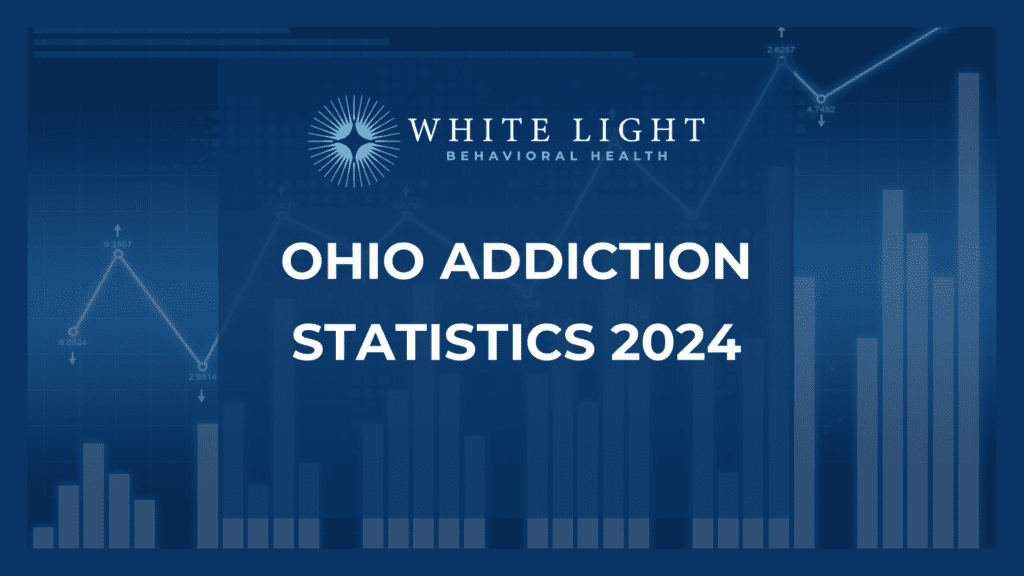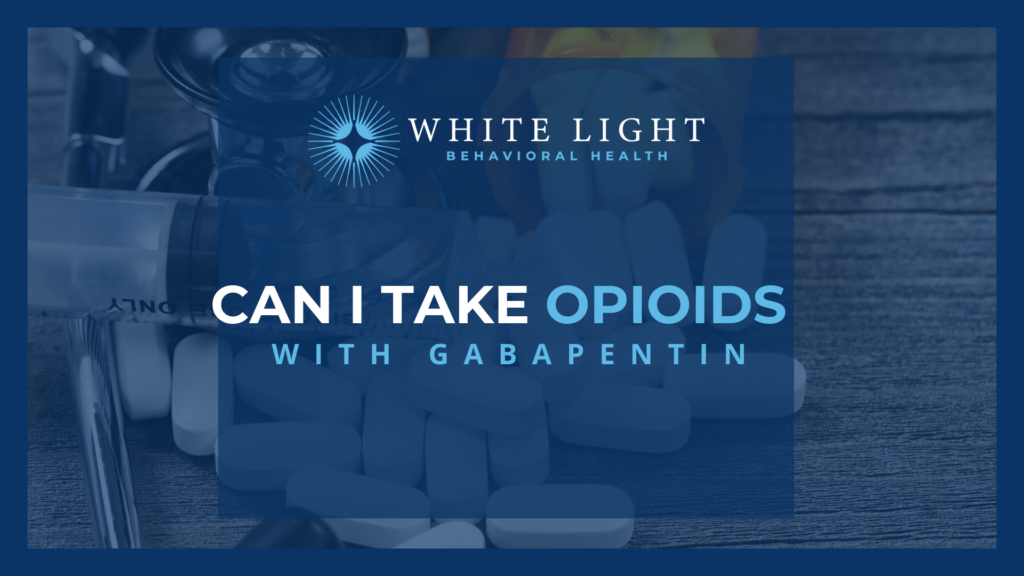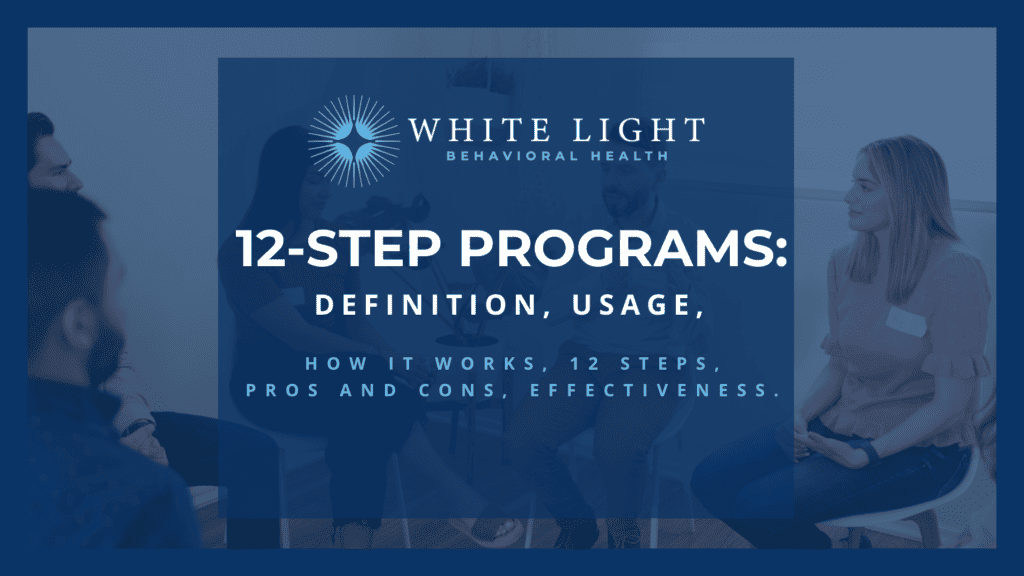Untangling the Complexity: Dual Diagnosis, Co-occurring Disorders and Comorbidity in Mental Health and Addiction
In discussions about mental health issues and their relationship to substance use disorders, the terms dual-diagnosis, co-occurring disorders, and comorbidity are often used interchangeably to describe having more than one condition simultaneously. However, the term comorbid disorder is distinct in that the two conditions being discussed can occur either at the same time or one after the other. In contrast, the terms co-occurring disorders and dual diagnosis are only used when the conditions coincide.
Recognizing the distinction between dual diagnosis or co-occurring disorders and comorbidity allows a deeper comprehension of interactions between mental health, physical illness, and substance use. In addition, if you are struggling with addiction or know someone who is, it is helpful to understand the factors contributing to co-occurring and comorbid disorders. This information can help you find an effective treatment program for yourself or a loved one.
Factors Contributing to Co-occurring Substance Use and Mental Health Disorders
Dual diagnosis is alarmingly prevalent in the realm of mental health and addiction. 7.7 million adults have co-occurring mental health and substance use disorders. Mental illness and substance use disorders share several risk factors that can result in a dual diagnosis.
Biological Factors
Biological factors, such as genetics and neurochemistry, play a significant role in developing co-occurring conditions. Individuals may have a predisposition to both mental health disorders and substance use disorders, making them more vulnerable to the co-occurrence of these conditions.
Trauma and Adverse Experiences
Exposure to traumatic events and adverse experiences, such as physical or emotional abuse, neglect, or witnessing violence, increases the likelihood of developing mental health and substance use disorders. Trauma can be a risk factor, as individuals may turn to substances as a coping mechanism.
Self-Medication
Individuals with undiagnosed or untreated mental health disorders may turn to substances as a form of self-medication. The temporary relief or alleviation of distress provided by substances can create a cycle of dependency, leading to the coexistence of mental health and substance use disorders.
Chronic Stress
Chronic stress, whether related to work, relationships, or other life circumstances, can significantly impact mental health and increase the risk of substance use. The interplay between chronic stress, mental health disorders, and substance use can create a complex web, contributing to the development of co-occurring conditions.
Lack of Access to Treatment
Limited access to mental health services and substance use treatment can hinder individuals from receiving the appropriate care for their conditions. This lack of access exacerbates the likelihood of co-occurring conditions, as untreated or undertreated disorders can intensify and perpetuate each other.
Substance Use
Excessive substance use can contribute to the development of mental health issues. This is because substances can disrupt the same brain areas as other mental disorders like schizophrenia, anxiety, mood, or impulse-control disorders.
Drug Use and Mental Health Disorders in Childhood
The parts of the brain that manage decision-making skills and impulse control are among the last to mature in young people. This may result in poor decision-making about drug use. Early drug use is a strong risk factor for the later development of substance use disorders. At the same time, substance use is a risk factor for the later occurrence of mental health issues because of the changes drugs or alcohol use causes in a person’s brain.
Untreated Attention Deficit and Hyperactivity Disorder
Attention deficit and hyperactivity disorder (ADHD) may last into adulthood for many people. People with ADHD tend to be more impulsive and likely to have behavior problems, both of which can contribute to drug and alcohol use and the subsequent development of a substance use disorder.
Substance Use Disorder and Physical Comorbidities
More than 33% of people in recovery also have a chronic health condition. The relationship between substance use disorder and physical illnesses is complex. Below are some ways that physical illnesses and drug and alcohol use intersect.
Pain as a Contributor to Substance Use Disorder
The debilitating nature of chronic pain can lead to physical and psychological distress, making individuals more vulnerable to seeking relief through substances. Opioids, in particular, are commonly prescribed for pain but carry a significant risk of addiction. An estimated 10% percent of people prescribed opioids misuse them. Individuals may also use illicit substances as a substitute for prescribed medication for pain management.
Substance Use Disorder and the Onset of Chronic Pain
On the other hand, individuals with substance use disorder may develop chronic pain due to their use of alcohol or drugs. Certain substances, like alcohol and opioids, can alter the body’s pain perception and tolerance levels, leading to the development of chronic pain conditions. Additionally, substance use can contribute to physical injuries or medical conditions that cause ongoing pain.
Tobacco Use
It is estimated that over 77% of people in treatment for substance use disorders use tobacco. There is a clear connection between substance use disorder and health issues caused by smoking cigarettes. Nicotine, the primary addictive substance in tobacco, affects the brain’s reward system similarly to other substances related to addiction. The release of dopamine, a neurotransmitter associated with pleasure and reward, reinforces the addictive behavior. This shared neurobiological mechanism may explain the link between tobacco use and substance use disorder. Unfortunately, tobacco use remains the foremost preventable cause of premature disease and death in the country.
Physical Illnesses
Physical illnesses can play a significant role in the development and progression of substance use disorder. Limited mobility, social isolation, and emotional distress can contribute to feelings of helplessness, leading individuals to turn to substances for temporary relief or escape. At the same time, physical illness can contribute to developing mental health issues such as anxiety and depression.
Compromised Health Outcomes
Substance use disorder can significantly impact the overall health outcomes of individuals with physical illnesses. Substance use can interfere with following medical advice, exacerbate symptoms, delay healing, and impair the body’s ability to fight off infections. This further complicates the management of physical illnesses and hinders recovery.
HIV Infection
Substance use disorder and HIV infections are related because substance use can increase the risk of HIV transmission. Sharing needles during injection drug use poses a significant risk of HIV transmission. In addition, substance use, such as heavy drinking, may compromise a person’s ability to negotiate safer sex practices. For people with HIV, drug or alcohol use may decrease their motivation to follow treatment plans and hinder engagement with healthcare providers. Alternatively, as with other physical illnesses, having HIV causes emotional distress, which may lead to using substances as a coping strategy.
Treatment Principles
Co-occurring substance use disorders and mental health issues require integrated care, targeted interventions, evidence-based practices, relapse prevention strategies, and comprehensive support services. Treatment approaches should consider the complexity of the conditions, the interplay between them, and the individual’s physical health.
Best Practices and Treatment Strategies
To effectively address the complexities of substance use disorders and co-occurring mental health issues, implementing best practices and treatment strategies is essential to consider each condition’s characteristics. Additionally, treatment programs that address co-occurring conditions simultaneously are more effective. Best practice also dictates addressing physical comorbidities while implementing substance use treatment. By adopting evidence-based approaches and providing comprehensive care, positive outcomes can be achieved for people facing these challenges. Below are some of the strategies used.
Integrated Care Models
People with substance use disorder and mental health issues benefit from integrated care models that bring together mental health and addiction treatment professionals. Collaborative efforts ensure a comprehensive assessment, treatment planning, and ongoing support that address the intertwined nature of the conditions.
Comprehensive Assessment
A thorough assessment is crucial for accurately diagnosing and understanding the complexities of a dual diagnosis. This assessment should include evaluating mental health, substance use, physical health, developmental history, psychosocial factors, and treatment history. The assessment process should also be multidimensional, incorporating various assessment tools and approaches.
Tailored Treatment Plans
A multidisciplinary team should collaborate to develop a comprehensive treatment plan addressing the unique challenges and interplay between mental health, substance use, and physical wellness.
Evidence-Based Interventions
Evidence-based practices ensure that interventions have been scientifically studied and proven effective. These practices may include cognitive-behavioral therapy, motivational interviewing, medication-assisted treatment, and trauma-informed care, which have been successfully used to treat co-occurring conditions.
Relapse Prevention and Aftercare
The relationship between mental health and substance use disorders can lead to a vicious cycle, with relapse in one area triggering relapse in another. This highlights the importance of ongoing support and aftercare services. Engaging individuals in aftercare programs that include peer support groups and community resources can help sustain long-term recovery and prevent relapse.
How Can Loved Ones Support Those Suffering From Co-occurring Conditions?
Here are some important ways loved ones can support those suffering from co-occurring conditions:
- Education: Educate yourself about dual diagnosis and understand the nature, symptoms, and treatment options. This knowledge will enable you to provide informed support and contribute to the individual’s well-being.
- Open communication: Loved ones should create a safe space for individuals to express their thoughts, feelings, and concerns without fear of stigma or judgment.
- Encourage professional help: Offer assistance in finding appropriate resources, scheduling appointments, and accompanying them to appointments if appropriate.
- Offer emotional support: Let them know they are not alone and their feelings are valid. Offer a listening ear and emotional support during difficult times.
- Be patient and understanding: It is essential to be patient and understanding, recognizing that progress may be gradual. Avoid placing unrealistic expectations and provide support throughout the ups and downs of their recovery.
- Learn about relapse prevention: Educate yourself about relapse prevention strategies and support the individual in developing coping skills, stress management techniques, and healthy lifestyle habits to reduce the likelihood of relapse.
Find Help Today
Effective treatment plans can be developed by understanding the complex interactions between mental health issues, physical illnesses, and substance use. White Light Behavioral Health embraces best practices and treatment strategies to support individuals facing a dual diagnosis. We recognize the importance of integrated care, evidence-based interventions, comprehensive assessments, tailored treatment plans, and relapse prevention in promoting recovery and well-being.

Share This Post



